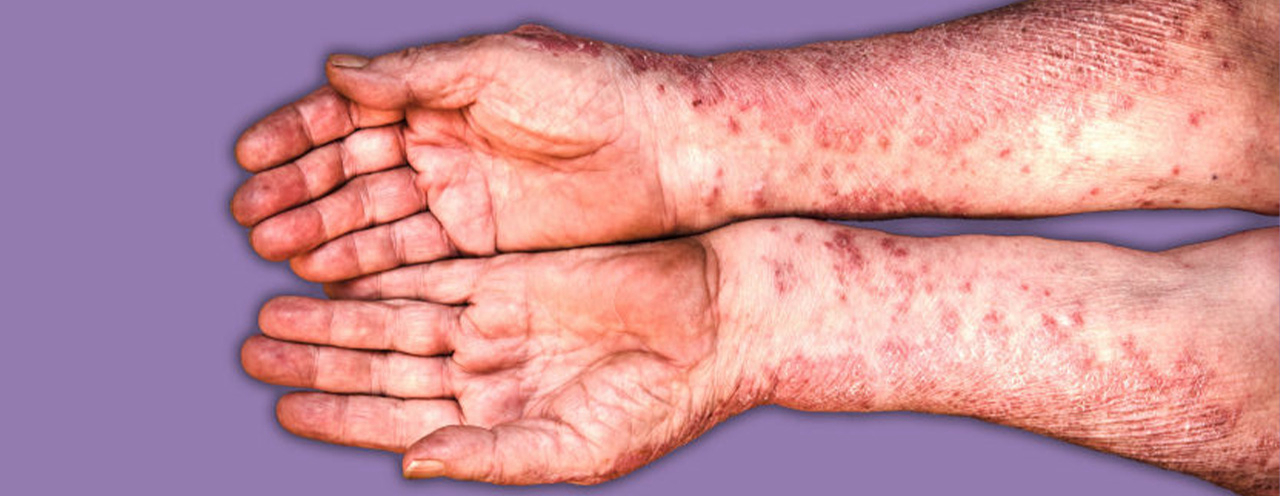PSORIASIS AND CANCER

Global Psoriasis Atlas PhD student, Alex Trafford, completed a systematic review and meta-analysis on the “Association of Psoriasis with the Risk of Developing or Dying of Cancer” which has been published in the scientific journal, JAMA Dermatology (http://bit.ly/38IsvtM)
His study concluded that people with psoriasis had an increased risk of developing a range of different types of cancer compared to those without psoriasis. Although the study found an association between psoriasis and cancer, it also recognised that more research is needed before any strong conclusions can be drawn.
This meta-analysis considers how cancer risk differs according to the severity of psoriasis and it is also the first study of its kind to explore how lifestyle factors, such as smoking, alcohol and obesity, influence this risk.
Our research highlighted that a lower cancer risk was found in studies that took lifestyle factors, such as smoking and obesity, into account. This provides evidence to suggest that, as with people without psoriasis, making healthy lifestyle changes could lower the risk of cancer for people with psoriasis.
There are positive steps we can all take to reduce our cancer risk. For example, we can reduce tobacco use, increase physical activity, control weight, improve diet, limit alcohol consumption and avoid excess sun exposure.
Tips for Maintaining a Healthy Lifestyle
According to the World Health Organisation, tobacco kills up to half of its users and more than 8 million people each year. More than 7 million of those deaths are the result of direct tobacco use while around 1.2 million are the result of non-smokers being exposed to second-hand smoke https://www.who.int/news-room/fact-sheets/detail/tobacco Tobacco contains many cancer-causing toxins and poisons that cause irritation, inflammation and damage to your body. Some of these chemicals have even been found to damage DNA. It is important to remember that smoking is the largest preventable cause of cancer in the world. The number of years you spend smoking affects your cancer risk the most strongly so it is never too late to stop. The more cigarettes you smoke a day, the higher your risk of cancer, therefore reducing the number of cigarettes you smoke a day can be a good first step. You may have a local “stop smoking” service or your doctor may be able to advise you. The UK NHS offers advice and support https://www.nhs.uk/live-well/quit-smoking/nhs-stop-smoking-services-help-you-quit/.
According to Cancer Research UK (https://www.cancerresearchuk.org/), people who drink alcohol are more likely to develop cancer than those who don’t. Alcohol causes 7 types of cancer, including breast, mouth and bowel cancers. People taking certain medications for psoriasis are advised to avoid, or limit alcohol consumption. You can check with your doctor or pharmacist and find more information on https://www.psoriasis-association.org.uk/.
We know that people with psoriasis are more likely to suffer from anxiety, stress and depression as well as low self-esteem. If you think that you may be drinking because of any of these issues, you should talk to your GP.
Being overweight or obese is the second biggest preventable cause of cancer in the UK. The good news is that small changes can make a big difference. Exercise can help to keep your weight in check. It can be anything you enjoy such as walking, gardening, cycling or yoga. As well as reducing your cancer risk, exercise can boost your mood, lower inflammation and ease symptoms of psoriasis. Considering food portion sizes and including plenty of fruit, vegetables and fibre whilst lowering processed, high calorie foods and red meat, can all help to maintain a healthy weight and reduce cancer risk.
